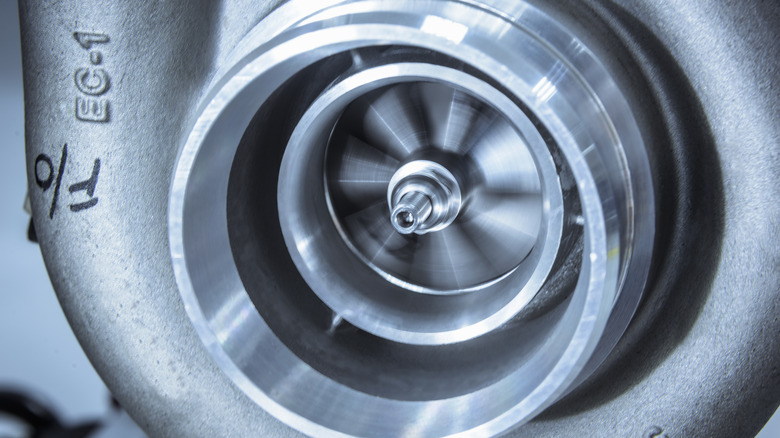Do Turbocharged Engines Need Their Oil Changed More Often?
Turbochargers first appeared in passenger cars during the 1960s because manufacturers were looking for ways to reduce emissions, and turbocharging offered a way to boost power without having to increase the size of the engine. In the 1970s, they were adopted more widely when the oil crisis caused fuel prices to skyrocket and made high-displacement, gas-guzzling American cars too expensive to run.
On a basic level, a turbocharger works by sucking air into the engine, compressing it, and then feeding it into the chamber in order for it to make more power. The air then mixes with fuel within the combustion chamber at high pressures, which allows the engine to be between 20% and 40% more efficient compared to a large naturally aspirated engine. Moreover, a turbocharged engine, when running efficiently, can give you a 40% higher power output.
Turbochargers spin at speeds up to 350,000 rpm while emitting gas temperatures that can reach 1,742 degrees Fahrenheit. As a result, turbochargers can hurt an engine's reliability if not properly maintained. That's because heat is very detrimental to oil and can even break down the oil's protective properties at very high temperatures. This wears down the insides of turbocharged engines, meaning more frequent oil changes are required to keep it running at optimum efficiency.
How often do you need to change your oil with a turbocharged engine?
There are no straightforward answers as to when to change your oil with a turbocharged engine because it depends greatly on how you use your vehicle and the type of engine it has. For diesel and turbocharged engines primarily used as daily drivers, changing the oil every 5,000 to 7,000 miles is recommended. On the other hand, if you use your turbocharged engine for more intensive applications, such as driving in frequent stop-and-go traffic or hauling, towing, or off-roading in dusty environments, you may have to change it more frequently. It is also recommended to use motor oil brands specifically designed for turbo engines, as they can handle the extra heat associated with turbochargers.
Changing the oil in a turbocharged engine also depends on the engine itself and the manufacturer's recommendations. For example, Ford recommends changing the oil for a 3.5-liter EcoBoost engine every 7,500 to 10,000 miles in normal driving conditions. Subaru, on the other hand, recommends changing the oil for its WRX turbocharged engines every 6,000 miles. It's a good idea to check with your specific vehicle manufacturer to make sure you are changing your turbocharged engine's oil at appropriate intervals.
Too frequent of oil changes point to a bigger problem
If you notice yourself topping up your oil more than usual, it could point to a more serious problem. Common symptoms of a turbocharger burning more oil than it should include blue smoke coming from the exhaust, an acidic burning smell, the check engine light coming on, or even unusually sluggish performance. If some of these issues are present, chances are that your turbocharger is suffering from a larger problem, such as worn-out turbo seals, rings, or bearings — or even leaks that allow the oil to slip into other parts of the system.
In some cases, it is possible to just replace these without having to swap out the entire unit. However, if the problems are more severe, or if the turbocharger has suffered extensive damage, the only viable option may be to replace it. The good news is, new turbochargers usually come with a warranty, so that any initial defects can be replaced without exorbitant charges.


